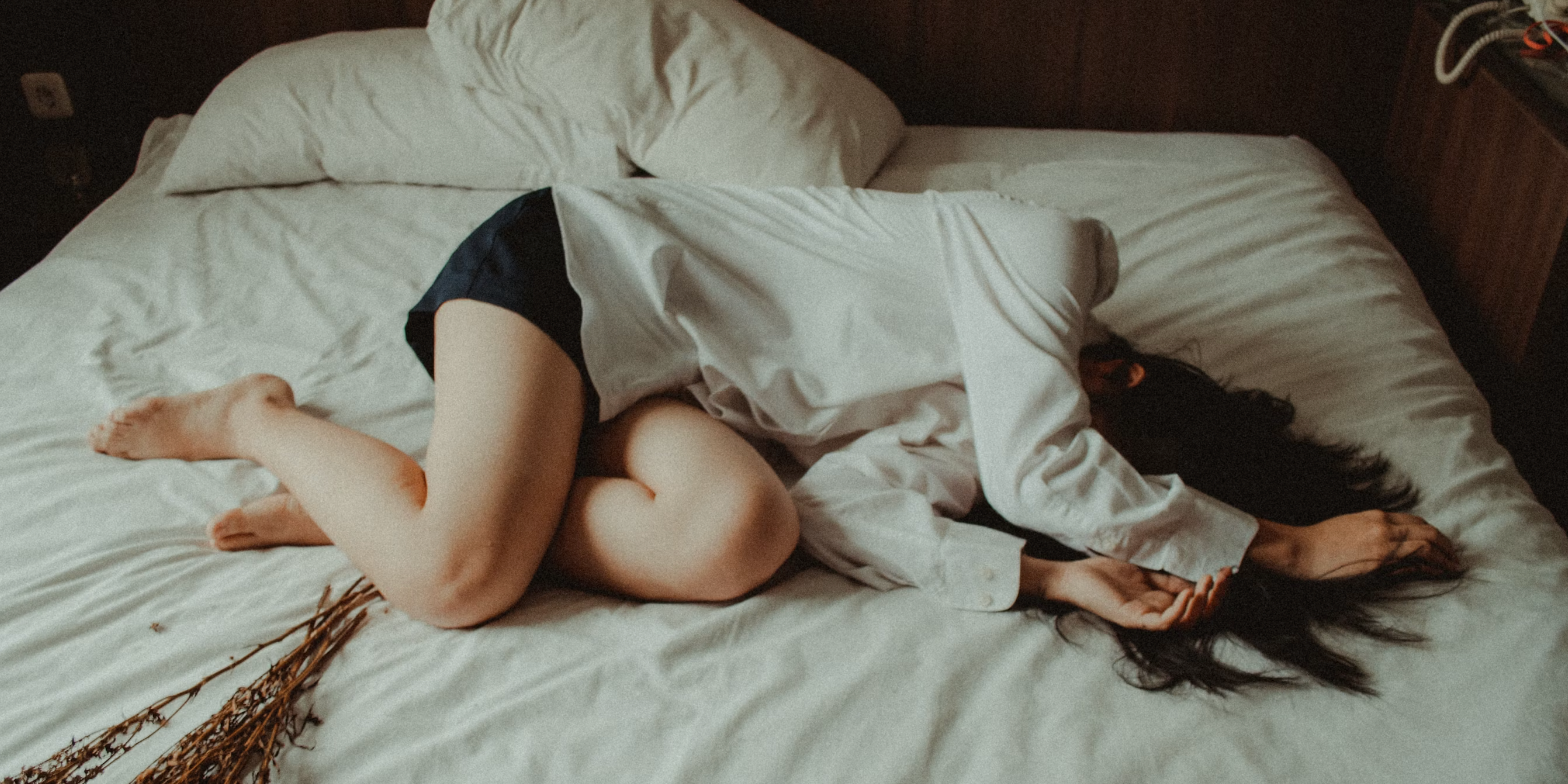How To Sleep Better On Your Period: 5 Proven Ways

Do you struggle with sleep on your period? From feeling sweaty to not being able to sleep because of insomnia, according to the National Sleep Foundation, almost 30% of people with periods say that their menstrual cycle affects their sleep in some way, with the most sleep disruption happening 3-6 days before their period starts.
Before we introduced our Sleep Short period pants, we looked into the ways that periods can impact your sleep and what can be done to improve the quality of sleep on your period. Read on to learn more.
Your body needs quality sleep — especially on your period!
Your body goes through emotional and physical changes during menstruation so if there's ever a time that quality sleep is important, it's when you're on your period! To make sure you are getting enough rest, getting settled into a good sleep pattern is really important, but we understand that your menstrual cycle might be affecting the quality of your sleep.
As gynaecologist Sara Matthews explains, "All women are different - some might find that their sleep is affected by their menstrual cycle, whereas others will not... our sleep pattern is regulated by our own circadian rhythm, and that is influenced by fluctuations in oestrogen and progesterone throughout the menstrual cycle."
How does PMS / PMDD affect your sleep?
Premenstrual syndrome (PMS) is the name for the symptoms women can experience in the weeks before or whilst on their period. PMDD is short for premenstrual dysphoric disorder and is a much more severe form of PMS. It usually affects women of childbearing age and is a severe and chronic medical condition that needs attention and treatment.
Have you ever spent the night before your period hot and sweaty, tossing and turning in bed? If so, you'll be all too familiar with PMS. Dr Nerina Ramlakhan, a sleep expert explains that this part of the cycle is often associated with changes in mood, body temperature and energy levels alongside physical symptoms.
Common physical symptoms of PMS can include bloating, sweating, pains and cramps, diarrhoea and appetite changes. Suffering with these physical symptoms makes it very easy for your sleep to be disrupted, so the best thing you can do to improve your sleep quality is focus on reducing these PMS symptoms.
Do you experience physical PMS symptoms just before or on your period? If the answer is yes, head to our blog on PMS symptoms and how to reduce them.
What can you do to sleep better during your period?
So what can you do to get a better night's sleep when you're on your period or in the days leading up to it? The answers are a mix of things to reduce PMS symptoms and things that anyone should do to get better sleep on a regular day!

1. Get yourself into a 'bedtime routine'
Getting into a routine of winding down an hour or so before bed tells your body that it's time to start relaxing. Sleep expert Sara Matthews suggests having a warm bath or shower before bedtime and swapping the phone or TV for a good book.
Changing your sheets the week before your period is due and trying some ambient noise in the bedroom, like a fan, can also be great to get you relaxing. You can also try drinking some hot plant-based milk or chamomile tea just before bed to help you fall asleep.

2. Deal with period pain and cramps
There's nothing worse than period pain during your period. Cramping can stop you from sleeping so it's important that you work on reducing or eliminating the pain before going to sleep to try and get a good uninterrupted night of well deserved shut-eye.
When you feel the cramps coming on, grab some pain relief. This can be in the form of a hot water bottle, ibuprofen, or a herbal tea. If your cramps don't show up before you get into bed, it's a good idea to take a hot water bottle with you anyway - this will relax your muscles and reduce the chances of cramps appearing. For natural remedies to period pain, you can have a read of these useful tips.

3. Keep a sleep diary
If you can't quite work out why your sleep is being disrupted but you're worried that your menstrual cycle might be affecting your sleep, try keeping a sleep diary for a month. This will help you track how changes in symptoms might be related to the quality of your nighttime rest.
Stress can also play a big role in disrupting the quality of your sleep, so keeping a diary can be a great way to track your mood changes and the way you feel, helping you pinpoint stressors that might be playing a role and start to think about ways that you might be able to reduce these.

4. Change your diet and increase your water intake
There are some 'non-negotiables' when it comes to sleep, regardless of of whether your period is having an impact or not. These include staying well hydrated, cutting back on caffeine and making sure you are eating the right foods to fuel your body.
If your sleep is suffering, make sure you're eating nutrient-packed fruit, vegetables and wholegrain foods. Some great options are lentils, nuts and seeds, avocados, leafy greens and bananas. For more great plant-based foods, have a read of our guide here.

5. Opt for breathable, comfortable period care
Did you know it’s recommended to not use tampons at night time? Opting for comfortable and breathable period care like our Super Heavy Sleep Shorts (which are made from 100% super-soft cotton) can stop your vagina from being irritated, helping you to sleep better at night time.
Increasing your comfort at night time is just what you need to settle down for a restful night and improve your quality of sleep. Our period pants also absorb your menstrual flow and soak up the blood, meaning midnight leaks are one less thing for you to worry about when you're trying to get into a deep sleep. To see our full range of soft, comfy period pants, visit our shop.
- Tags: Periods



